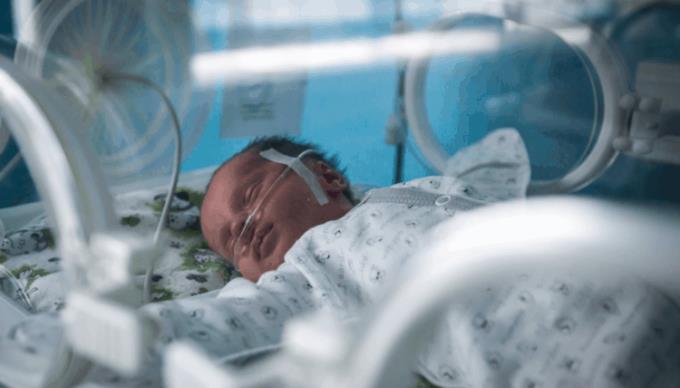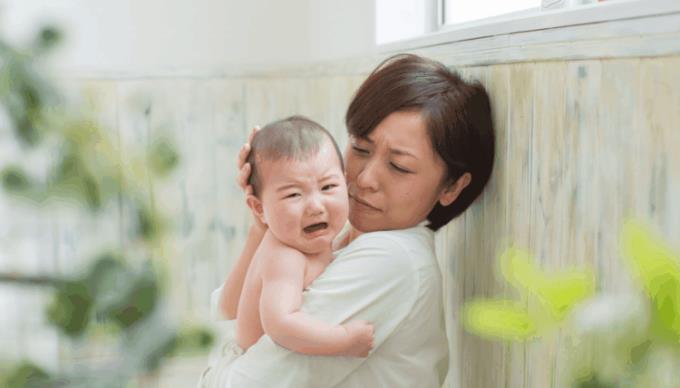Stress is a very common thing in life, it is difficult to avoid even during pregnancy. A study in the UK shows that stress during pregnancy can affect IQ, fetal development and this is also the cause of other problems in life. But are all stresses harmful? And why can stress during pregnancy affect the fetus? Let's find out!
aFamilyToday Health will help you better understand what stress can do to the fetus, how to relieve stress and why not always stress during pregnancy is harmful.
How stressful pregnant women affect the fetus?
1. Stress during pregnancy can cause premature or low birth weight

The health of the fetus is of the greatest concern for those who are about to be mothers and these worries can turn into real stress. However, the first thing you need to do in order to have a healthy baby is calmness. Ann B Border, an obstetrician and gynecologist at Evanston Hospital, USA, said when a pregnant mother can not cope with stressful situations, the baby can be born early and underweight.
Stress increases the body's production of the corticotropin-releasing hormone (CRH). In pregnant women, CRH affects gestation duration and fetal maturity. The higher the CRH level, the earlier the date of birth.
Surprisingly, this usually happens in the first trimester . Experts in obstetrics and gynecology used to think that in order to prevent premature birth, pregnant women should avoid stress in the last trimester, but the reality is quite the opposite. Stress that increases CRH leads to preterm delivery occurring again in the first few weeks of pregnancy.
2. Stress affects IQ and brain development

Scientists have found that high cortisol levels can lower a child's IQ. Normally, the placenta produces enzymes that break down cortisol, but if the stress is too much or prolonged, the amount of this enzyme is not enough to cope with the stress-induced cortisol.
Besides, stress during pregnancy can affect your baby's brain development. Specifically, a study carried out at Wayne State University, USA, found that mother's stress affects brain connection and the organization of functional nervous systems, making the brain less efficient.
Researchers also said that the brain did not develop from the simplest to the most complex. In fact, the cerebellum, the stress response center, was one of the first growing organs. This makes the fetus sensitive when the mother is stressed in the first place.
3. Stress can cause problems with an unborn baby's sleep

Maternal mood not only affects the development of the fetus but also the sleep of the baby. A 2007 study found that stressful pregnant women affect their baby's sleep time.
Scientists tested how long and how often 6, 18 and 30-month-old babies slept during the night. As a result, babies whose mothers were anxious during pregnancy often experienced sleep problems at 18 and 30 months. This happens because cortisol crosses the placenta and affects the area of the brain responsible for the baby's circadian rhythm.
4. Stress during pregnancy can cause problems with your baby's health

A 2011 study confirmed that pregnancy stress affects children's overall health. The results showed that babies are at risk of early infections and mental disorders when stressed from the womb. In addition, children also have other problems such as eyes, ears, digestion, breathing, skin, skeletal muscles, circulation, genital diseases, allergies and asthma.
Another link was found between stress and attention deficit hyperactivity disorder (ADHD). This effect is even stronger than in pregnant women who smoke cigarettes.
5. Stress during pregnancy increases the child's level of fear and anxiety

According to Dr. Elysia Davis from the University of Denver, USA, high cortisol levels in pregnant women make babies more vulnerable to stress in the future. This is evident when newborns have blood drawn for testing, they have a stronger stress response.
When they reach their toddler age, they will feel scared when they see a stranger enter the room or the ball rolling towards them. Usually, children will happily participate in the game, but they will stand still or run to their mother to feel safer. Mothers also find that children are more anxious in kindergarten and in primary school, or are more afraid of going to school.
Not all stress is the same
After reading the above information, do you really want to avoid any even the slightest stressful situation, escape from the world and meditate day and night?
This is not necessary. Research shows that short-term stress doesn't harm your baby. To determine this, researchers measured cortisol levels in post-stress's saliva and amniotic fluid and found that short-term stress did not affect the fetus. It is also the long-term stress that leads to an increase in CRH levels in the amniotic fluid, which increases the risks mentioned above.
How to deal with stress during pregnancy?

Fortunately, you can deal with stress in the following ways:
Pay attention to what you eat and when: Don't miss out on a breakfast, eating plenty of fruits, vegetables, fish and whole grains. Try to eat at the same time every day.
Exercise: Being pregnant doesn't mean you're lying down. Go for a walk in the park, go swimming or do simple, slow aerobics. Exercise increases happiness hormone levels to help you forget about stress.
Meditation: This is a great way to reduce anxiety. So you try to meditate to see how effective offline.
Around you are the people who make you happy: Chatting with family members or meeting friends, you will find your day more adorable.
Write down the problems you are facing: This simple way of reducing the negative emotions you are experiencing.
Enjoy your hobby (or find a new one if the old one doesn't make you happy anymore): This will keep your mind busy and stop thinking about the things you're worried about.
Sleep more: While getting plenty of sleep doesn't solve your problems, it gives your body a rest to keep you and your baby healthy.
See a specialist: If you can't cope with stress on your own, seek professional help. Mood changes can be a sign of depression or you are facing too much stress and unable to control yourself. Don't hesitate to ask for help if you need it.
Can the effects of stress be good for your baby?
A study in mice prairie voles has behaviors and responses similar to humans, finding that stress can be beneficial if the baby is born in a well-supported environment. Increased cortisol can promote the development of the fetal nerve connections. Babies who received particularly good care after birth showed no signs of increased anxiety.
Another study at the University of Rochester , USA, also showed that the love and the bonds between mother and child can reverse the effects of stress in the womb, even the cognitive development of infants. . So don't worry too much. Your love and support is what your baby needs. Talking with your baby in your womb, touching and singing to your baby will help your body send the signals of your love and care to your baby.

















